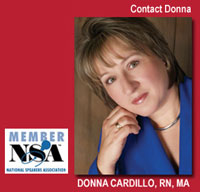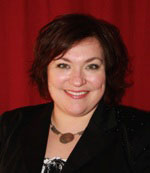Working—and Networking—Your Way to a Job in Nursing Using Social Media & Available Tools
By Rick Docksai
Think a nursing degree is a fast track to gainful employment? Think again. Ever since the 2008 market crash, recent graduates of U.S. nursing schools have been struggling along with the rest of the new graduates to land their first permanent jobs. With 36% still job-searching four months after graduation in 2011, according to a National Student Nurse’s Association poll, it has been a long haul.
First, to be clear: There are plenty of jobs in nursing, and more are emerging all the time. But the hospitals and clinics who hire for them have an abundance of veteran nurses with years of experience, and they are consequently not so inclined to offer positions to entry-level grads.
Making matters worse, there is also an over-supply of new entry-level grads. Enrollment in baccalaureate nursing programs in the 2010-2011 school year, at around 169,000 students, is nearly double the enrollment of a decade earlier, according to the American Association of Colleges of Nursing.
A CNN story from earlier this year cites the case of the Los-Angeles-based Daughters of Charity Health System, whose hospitals have a system-wide goal of hiring at least 10 new grads every year. The recruiting team receives as many as a thousand applications or more for each new post.
Hope for Nursing Grads
So, what is a current nursing student to do? Not get discouraged, for starters. Nursing is still one of the best fields for finding a job, and it’s going to get even better in years ahead, thanks to growing demand for health-care from aging Baby Boomers and the millions of patients of all ages who will be enrolling in insurance plans as the Obama administration’s health-care reform law goes into effect. There are good reasons why when U.S. News & World Report compiled its “Best 100 Jobs of 2012,” it gave the number-two spot to registered nurses.
“Even in a tough economy, nursing has flourished compared with most other occupations,” the report states, adding that “long-term job growth is expected to be much faster than the national average. … Solid employment growth and a wide range of job prospects help make registered nursing a top healthcare job.”
The Bureau of Labor Statistics (BLS) agrees. Its news release “The 30 Occupations With the Largest Projected Employment Growth, 2010-2020” leads off with nursing. The health-care sector will add nearly 712,000 new registered nurse jobs—a 26% increase—in that 10-year-time span, according to the BLS data. Jobs for nursing aides will grow, too: 302,000 new jobs to the existing pool of 1.5 million, a 20.1% bump.
Standing Out from the Crowd
Nonetheless, what holds true in most job sectors today holds true in nursing: Job candidates in nursing must compete for employers’ attention. Only by standing out from the dozens, hundreds, or even thousands of other applicants can a recent grad in nursing hope to secure a job. Now for some good news: As also holds true in most job fields, networking and smart use of social media can both go a long way. Here are a few pointers from Donna Cardillo, a registered nurse who speaks and writes frequently on nursing careers:

Print out personal business cards and carry them with you to events. It would surprise you how many nurses don’t.
Create profiles on LinkedIn and other social-networking sites, and update them regularly. Even Facebook can be a great job-search tool—put the word out to your Facebook friends that you’re searching for a job, and you never know what recommendations they might send your way. Plus, you can find troves of nursing-relevant news and information on any organization that might be hiring, just by visiting their Facebook pages.
LinkedIn has great uses for reconnaissance, as well. Before you submit your CV for a job, make sure to look up the hiring manager’s LinkedIn profile for any specific details that you could use to tailor your cover letter and job credentials to the specific job. Both sites have groups and forums where you can find professionals in nursing fields and connect with them for interviews and job leads.
Join professional associations, such as your local chapter of the American Nurses Association. These groups are indispensable for the one-on-one contacts that you can make through them if you get involved in them and attend their events. And according to Cardillo, it’s these one-on-one contacts where the most effective job leads are found.
Make the most of personal connections. When you meet professionals in your field who might be able to help you, whether at a function or in an online group, don’t be shy about contacting them and asking for advice. Most will be glad to help. Cardillo suggests preparing a cheat sheet with talking points and questions before you call them. Send them thank-you notes afterward. Then periodically keep in touch by sending them articles that might interest them, greeting messages on the holidays, and an occasional short email letting them know how you are doing.
Consider all the possibilities. Everyone knows that hospitals hire nurses, and those are the first places most applicants look for jobs. But Cardillo points out that the nursing field is growing more and more diverse, with new jobs opening in rehab programs, long-term care facilities, community clinics, and elsewhere. Widen your search parameters to the whole variety of potential job venues. RN jobs in skilled nursing facilities, Home Health facilities, Hospice Care and Elderly Care could be that “1 year of experience” the hospitals are looking for.
Craft a good online resume—with lots of keywords. According to Cardillo, more and more health-care employers use “optical character recognition” software to scan the online resume banks and zero in on the resumes that have the specific words and phrases that they most want to see. If your resume is one of those keyword-rich resumes, the chances are that you will be one of the few brought in for an interview.
Clearly, different employers have different favorite keywords, so read up on the employer before you submit your application. But Cardillo suggests reading a mix of classified ads and look for words that keep recurring. Work these ones into your CV. Keywords could be skill-related, such as “computer skills,” “teaching,” or “counseling”; credential-related, such as “BSN,” “critical care,” or “case management”; or all-around desirable traits, such as “flexible,” “team player,” and “highly motivated.”Whatever words you use, though, Cardillo has this extra bit of advice: short, simple phrases whenever possible—“home infusion therapy” will go over better than “intravenous therapy in a patient’s home.”
Location, Location, Location
Some parts of the country are hiring more new nurses than others. So if you’re not having any luck finding a job in your state, consider a move. Massachusetts is one of the best states for nursing jobs, along with New York, Florida, and Texas, according to the BLS data. Some cities are noted hotspots for nursing jobs, too. Boston, Atlanta, St. Louis, and Philadelphia are a few of the winners on the BLS’s top-ten list.
The Fine Points of LinkedIn
LinkedIn is “especially important for nursing and healthcare professionals,” in the words of Michelle Mercurio, national manager of career services at Chamberlain College of Nursing. LinkedIn has more members and geographic spread than any job-networking site on Earth. And as Mercurio notes, few—if any—networking sites will turn up as many nursing career leads as LinkedIn will: As of August 2012, the site had nearly two million members affiliated with health-care careers.

Michelle Mercurio: Chamberlain College of Nursing
If you haven’t already done so, create a LinkedIn profile, and fill it out with lots of detail about your skills and accomplishments, including your education, volunteer, and professional activities. Here again, keywords matter.
“Make use of action verbs that are common to the nursing industry such as delegate, precept, direct, manage, provide, administer, report, educate, contribute and communicate,” Mercurio writes.
The more your profile spells out about your knowledge and skills, and the more relevant keywords that you use while crafting it, the easier it will be for recruiters on LinkedIn to spot your profile. Mercurio encourages grads to study the LinkedIn profiles of nurse managers and nursing executives to note how they present themselves.
Then join some discussion groups. LinkedIn has thousands of groups on every career topic, including more than 1,700 groups on nursing. Some of them are alumni groups—your own school will surely have such a group, and that’s definitely one to join—but most others are open to anyone, anywhere, who’s got education in nursing and a desire to find a nursing job.
You might also check out LinkedIn’s “Companies” feature, which lets you search for any health-care organization that might be hiring and “follow” it—i.e., sign up for instant news alerts on it, including new job opportunities at its facilities. Obviously, it benefits you to know of a job opening before the rest of the competition does.
Linkedin’s “Jobs” feature, meanwhile, will notify you of new job opportunities anywhere. The site will automatically send you notices about job vacancies matching your skills. But you can and should take the extra initiative, too, of using the “advanced search” parameters to make targeted searches for specific nursing jobs in the parts of the country or the world where you want to work.
Great Prospects for Those Who Strive to Find Them
It’s fair to say that nursing isn’t for everybody. There are long, labor-heavy shifts, and all the strain, stress, and unfortunate “yuk factor” that dealing with people’s sores, injuries, and physical pains for the bulk of every working day presents. Sure, many nurses bring in enviable salaries, but most nurses don’t do it, much less stay in it and excel at it, strictly for the money. To be successful in nursing, you have to love it—love it enough to work your hardest and to be there for your patients even when you are tired, frustrated, or just feeling like things are not going your way.
That goes for searching for a job in nursing, too. Nursing graduates have to work hard—and network hard—to find their jobs. But if you are inspired enough to enter nursing and brave the job’s challenges and travails, then you’ve got the right mindset and attitude to take on the job search.
Resources for Additional Information and Links to Information Referenced Above
- Nursing Career Paths
- CNN Money: Tough market for new nursing grads
- BLS data on Nursing
- Money: Best 100 Jobs of 2021
- Michelle Mercurio Blog: Using LinkedIn to Land Your Next Nursing Job
- Donna Cardillo’s Website
Find Nursing Licensure Requirements in Your State:

Learn about becoming a Registered Nurse, LPN or LVN in your state:
To View Full U.S. Map Click Here.





